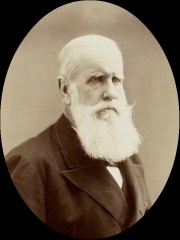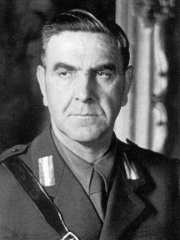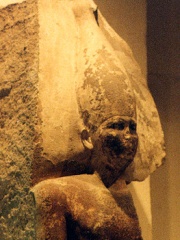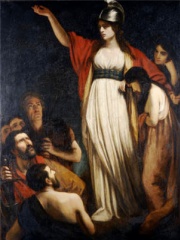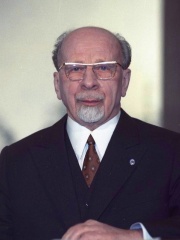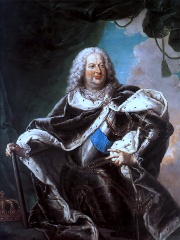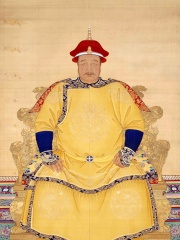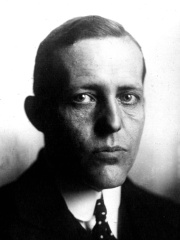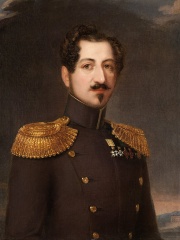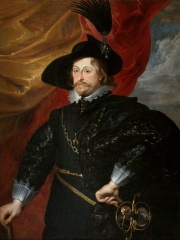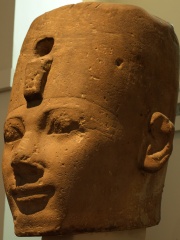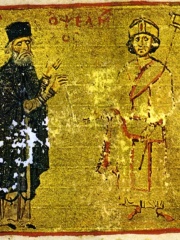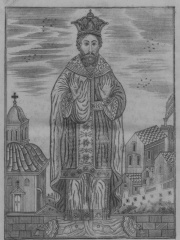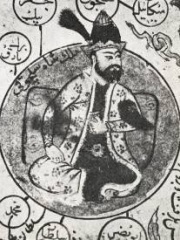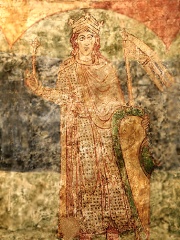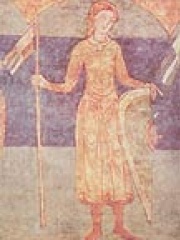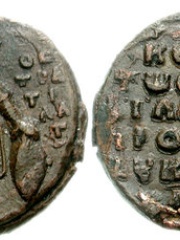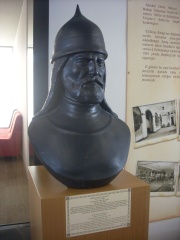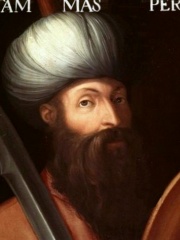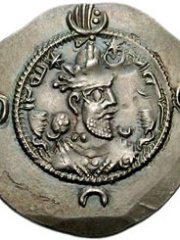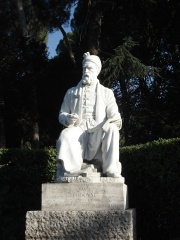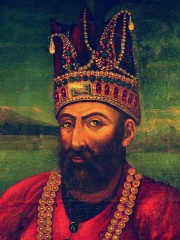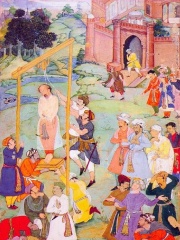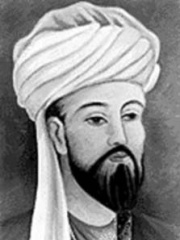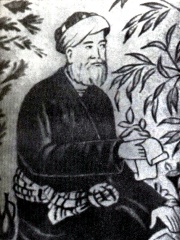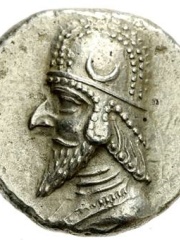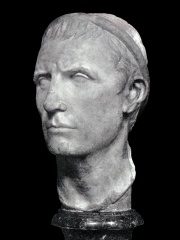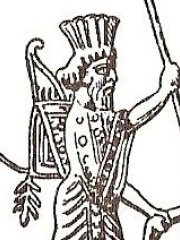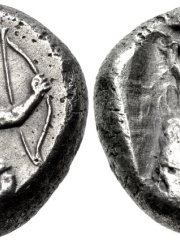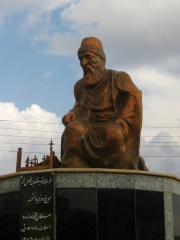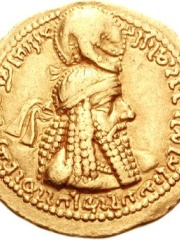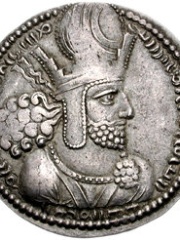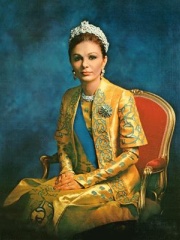POLITICIAN
Nizam al-Mulk
1018 - 1092
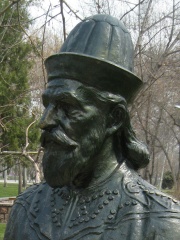
 Nizam al-Mulk
Nizam al-Mulk
Abū ʿAlī Ḥasan ibn ʿAlī Ṭūsī (Persian: ابوعلی حسن بن علی طوسی) (1018 – 1092), better known by his honorific title of Niẓām al-Mulk (Persian: نظامالملک, lit. 'Orderer of the Realm'), was a Persian Sunni scholar, jurist, political philosopher and vizier of the Seljuk Empire. Rising from a low position within the empire, he became the de facto ruler of the empire for 20 years after the assassination of Sultan Alp Arslan in 1072, serving as the archetypal "good vizier". Viewed by many historians as "the most important statesman in Islamic history", the policies implemented by Nizam ul-Mulk remained the basic foundation for administrative state structures in the Muslim world up until the 20th century. One of his most important legacies was the founding of a system of madrasas in cities across the Seljuk Empire which were called the Nizamiyyas after him. Read more on Wikipedia
His biography is available in 46 different languages on Wikipedia (up from 44 in 2024). Nizam al-Mulk is the 870th most popular politician (down from 663rd in 2024), the 33rd most popular biography from Iran (up from 35th in 2019) and the 13th most popular Iranian Politician.
Nizam al-Mulk was a Persian scholar and vizier to the Seljuk Sultan Alp Arslan. He is most famous for his work, "The Book of Government or Rules for Kings," which is a political treatise that outlines how a ruler should govern.
Memorability Metrics
Page views of Nizam al-Mulk by language
Among POLITICIANS
Among politicians, Nizam al-Mulk ranks 870 out of 19,576. Before him are Pedro II of Brazil, Ante Pavelić, Sneferu, Boudica, Walter Ulbricht, and Stanisław Leszczyński. After him are Hong Taiji, Lutz Graf Schwerin von Krosigk, Oscar I of Sweden, Sergey Lavrov, Władysław IV Vasa, and Thutmose I.
Most Popular Politicians in Wikipedia
Go to all RankingsPedro II of Brazil
1825 - 1891
HPI: 76.55
Rank: 864
Ante Pavelić
1889 - 1959
HPI: 76.53
Rank: 865
Sneferu
2700 BC - 2609 BC
HPI: 76.53
Rank: 866
Boudica
33 - 61
HPI: 76.52
Rank: 867
Walter Ulbricht
1893 - 1973
HPI: 76.52
Rank: 868
Stanisław Leszczyński
1677 - 1766
HPI: 76.50
Rank: 869
Nizam al-Mulk
1018 - 1092
HPI: 76.49
Rank: 870
Hong Taiji
1592 - 1643
HPI: 76.49
Rank: 871
Lutz Graf Schwerin von Krosigk
1887 - 1977
HPI: 76.49
Rank: 872
Oscar I of Sweden
1799 - 1859
HPI: 76.48
Rank: 873
Sergey Lavrov
1950 - Present
HPI: 76.47
Rank: 874
Władysław IV Vasa
1595 - 1648
HPI: 76.47
Rank: 875
Thutmose I
1600 BC - 1493 BC
HPI: 76.46
Rank: 876
Contemporaries
Among people born in 1018, Nizam al-Mulk ranks 1. After him are Pope Victor II, Harthacnut, Michael Psellos, Jeongjong, 10th monarch of Goryeo, Bagrat IV of Georgia, Ermengarde of Anjou, Duchess of Burgundy, and Sophie, Countess of Bar. Among people deceased in 1092, Nizam al-Mulk ranks 2. Before him is Malik-Shah I. After him are Vratislaus II of Bohemia, Conrad I, Duke of Bohemia, Philaretos Brachamios, and Tzachas.
Others Born in 1018
Go to all RankingsNizam al-Mulk
POLITICIAN
1018 - 1092
HPI: 76.49
Rank: 1
Pope Victor II
RELIGIOUS FIGURE
1018 - 1057
HPI: 73.88
Rank: 2
Harthacnut
POLITICIAN
1018 - 1042
HPI: 73.49
Rank: 3
Michael Psellos
PHILOSOPHER
1018 - 1078
HPI: 72.64
Rank: 4
Jeongjong, 10th monarch of Goryeo
POLITICIAN
1018 - 1046
HPI: 66.10
Rank: 5
Bagrat IV of Georgia
POLITICIAN
1018 - 1072
HPI: 65.05
Rank: 6
Ermengarde of Anjou, Duchess of Burgundy
NOBLEMAN
1018 - 1076
HPI: 58.35
Rank: 7
Sophie, Countess of Bar
NOBLEMAN
1018 - 1093
HPI: 57.90
Rank: 8
Others Deceased in 1092
Go to all RankingsMalik-Shah I
POLITICIAN
1055 - 1092
HPI: 78.06
Rank: 1
Nizam al-Mulk
POLITICIAN
1018 - 1092
HPI: 76.49
Rank: 2
Vratislaus II of Bohemia
POLITICIAN
1035 - 1092
HPI: 69.24
Rank: 3
Conrad I, Duke of Bohemia
POLITICIAN
1035 - 1092
HPI: 63.72
Rank: 4
Philaretos Brachamios
POLITICIAN
1100 - 1092
HPI: 59.41
Rank: 5
Tzachas
MILITARY PERSONNEL
1100 - 1092
HPI: 58.85
Rank: 6
In Iran
Among people born in Iran, Nizam al-Mulk ranks 33 out of 631. Before him are Tahmasp I (1514), Khosrow I (501), Ferdowsi (940), Nader Shah (1688), Mansur Al-Hallaj (858), and Muslim ibn al-Hajjaj (817). After him are Nasir al-Din al-Tusi (1201), Jami (1414), Darius II (-475), Salman the Persian (568), Shirin Ebadi (1947), and Antiochus III the Great (-241).
Others born in Iran
Go to all RankingsTahmasp I
POLITICIAN
1514 - 1576
HPI: 77.27
Rank: 27
Khosrow I
POLITICIAN
501 - 579
HPI: 77.21
Rank: 28
Ferdowsi
WRITER
940 - 1020
HPI: 77.11
Rank: 29
Nader Shah
POLITICIAN
1688 - 1747
HPI: 76.87
Rank: 30
Mansur Al-Hallaj
WRITER
858 - 922
HPI: 76.84
Rank: 31
Muslim ibn al-Hajjaj
RELIGIOUS FIGURE
817 - 875
HPI: 76.60
Rank: 32
Nizam al-Mulk
POLITICIAN
1018 - 1092
HPI: 76.49
Rank: 33
Nasir al-Din al-Tusi
WRITER
1201 - 1274
HPI: 76.41
Rank: 34
Jami
WRITER
1414 - 1492
HPI: 76.34
Rank: 35
Darius II
POLITICIAN
475 BC - 404 BC
HPI: 76.34
Rank: 36
Salman the Persian
COMPANION
568 - 657
HPI: 76.30
Rank: 37
Shirin Ebadi
SOCIAL ACTIVIST
1947 - Present
HPI: 76.17
Rank: 38
Antiochus III the Great
POLITICIAN
241 BC - 187 BC
HPI: 76.17
Rank: 39
Among POLITICIANS In Iran
Among politicians born in Iran, Nizam al-Mulk ranks 13. Before him are Cambyses II (-550), Malik-Shah I (1055), Xerxes II of Persia (-500), Tahmasp I (1514), Khosrow I (501), and Nader Shah (1688). After him are Darius II (-475), Antiochus III the Great (-241), Rashid-al-Din Hamadani (1247), Ardashir I (180), Shapur I (150), and Farah Pahlavi (1938).
Cambyses II
550 BC - 522 BC
HPI: 78.72
Rank: 7
Malik-Shah I
1055 - 1092
HPI: 78.06
Rank: 8
Xerxes II of Persia
500 BC - 424 BC
HPI: 77.43
Rank: 9
Tahmasp I
1514 - 1576
HPI: 77.27
Rank: 10
Khosrow I
501 - 579
HPI: 77.21
Rank: 11
Nader Shah
1688 - 1747
HPI: 76.87
Rank: 12
Nizam al-Mulk
1018 - 1092
HPI: 76.49
Rank: 13
Darius II
475 BC - 404 BC
HPI: 76.34
Rank: 14
Antiochus III the Great
241 BC - 187 BC
HPI: 76.17
Rank: 15
Rashid-al-Din Hamadani
1247 - 1318
HPI: 76.07
Rank: 16
Ardashir I
180 - 242
HPI: 76.04
Rank: 17
Shapur I
150 - 270
HPI: 75.87
Rank: 18
Farah Pahlavi
1938 - Present
HPI: 75.83
Rank: 19
